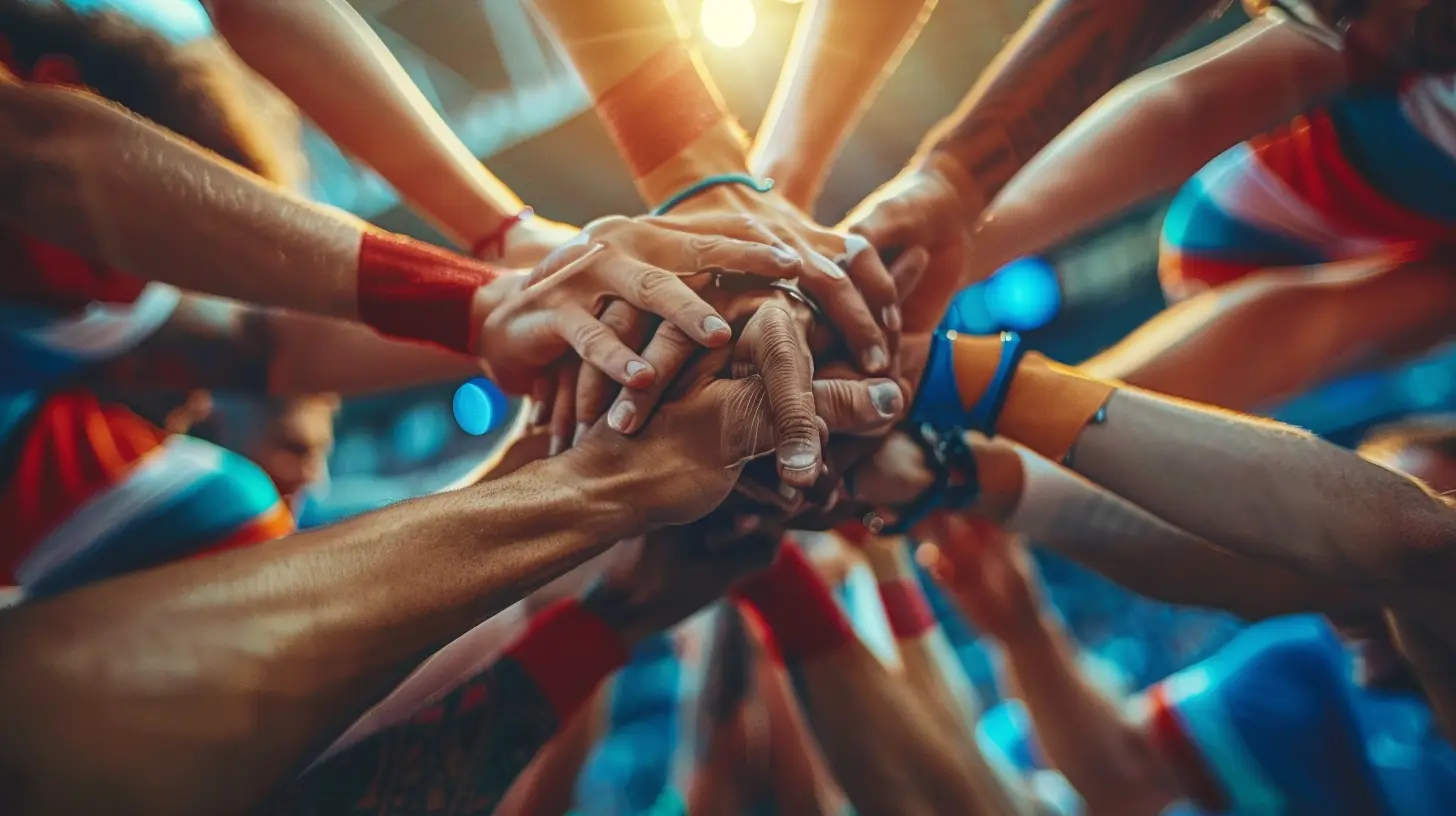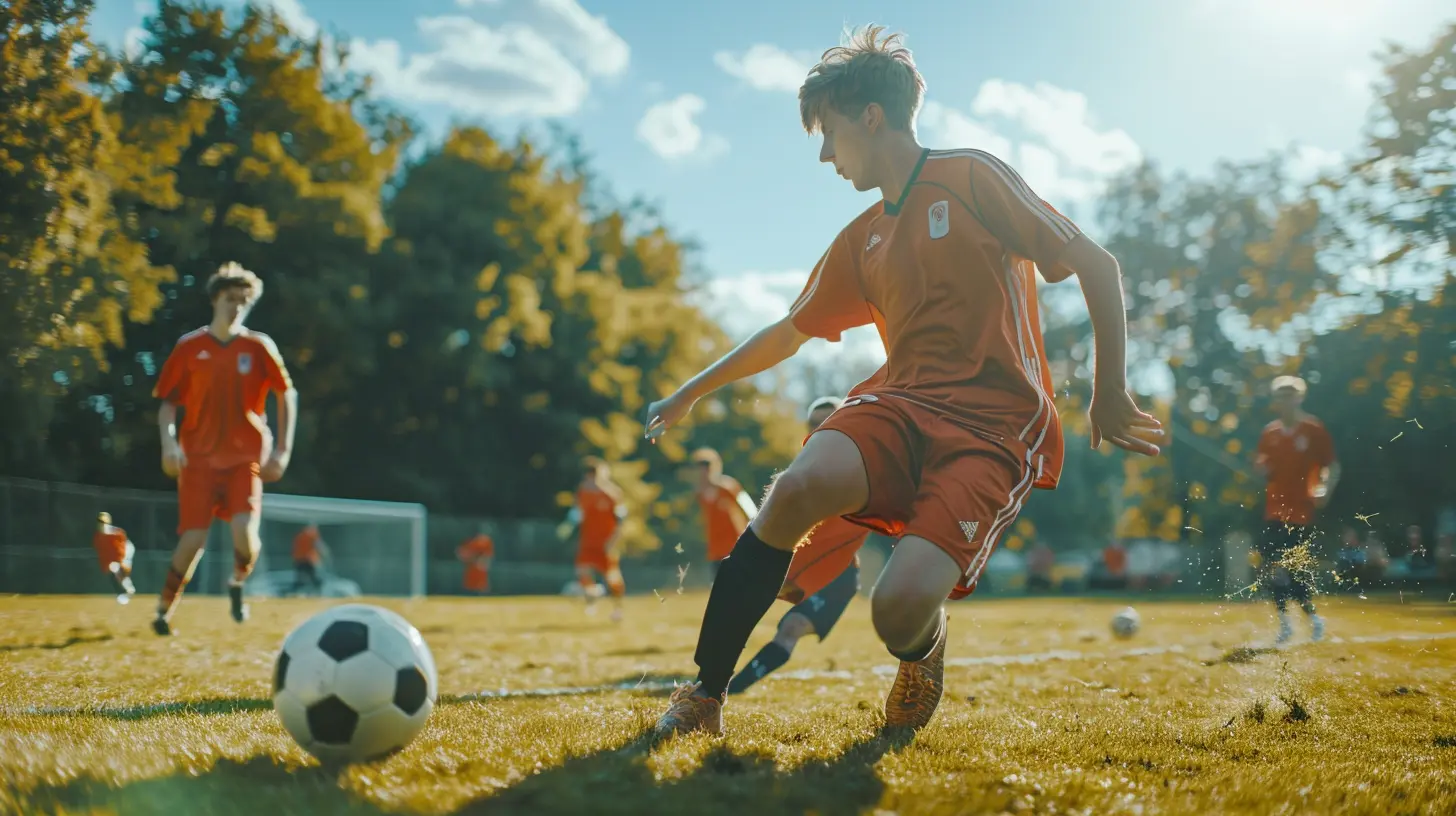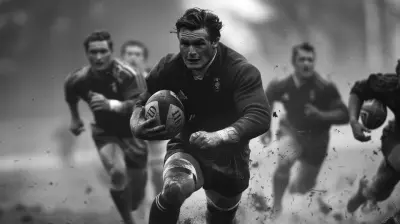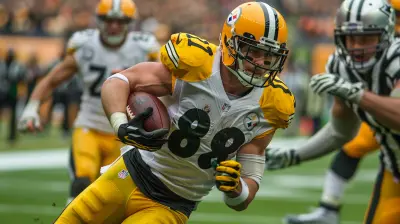The Power of Local Brands in Grassroots Sports Sponsorships
12 September 2025
When we think of sports sponsorships, it's easy to picture the big names. You know, Nike, Adidas, Coca-Cola, and other global giants plastered across jerseys, stadiums, and TV commercials. But what about the small, local brands? The ones you see on the jerseys of your local football team or on the banners at a community basketball tournament? These local brands are making a significant impact in the world of sports sponsorship, especially at the grassroots level.
Local brand sponsorships might not grab headlines like a multi-million-dollar deal with a big-name athlete, but their influence is undeniable. In many ways, they are the backbone of grassroots sports, providing critical support to teams, leagues, and events that might otherwise struggle to survive. So, what's driving this trend? And why is it important for both the sports community and the sponsors themselves?
Let’s dive into the power of local brands in grassroots sports sponsorships and why this relationship benefits both parties in ways that can’t always be measured in dollars and cents.

Why Grassroots Sports Matter
Before we talk about sponsorships, let's take a step back and look at grassroots sports themselves. These are the community-level leagues, teams, and events where it all begins. Whether it's kids playing soccer at the local park or amateur athletes competing in weekend tournaments, grassroots sports are the foundation of the sporting world.Grassroots sports are critical for several reasons:
- Development of talent: Many professional athletes got their start in local leagues. That kid kicking a ball in a dusty field today might be tomorrow's football star.
- Community engagement: Grassroots sports bring people together. Whether as players, coaches, or spectators, local sports foster a sense of community.
- Health and well-being: Encouraging physical activity at the grassroots level promotes a healthy lifestyle, especially among young people.
Without grassroots sports, the entire ecosystem of athletics would crumble. And guess what? These leagues and teams need funding, equipment, and support to survive—and that’s where local brands come into play.

Local Brands: The Unsung Heroes of Grassroots Sports
While we often focus on big-name sponsors, local brands are the unsung heroes of grassroots sports. These businesses—whether they’re your neighborhood bakery, a local tech startup, or a family-owned car dealership—play a crucial role in keeping grassroots sports alive and kicking (pun intended).Here’s why local brands are uniquely positioned to make a difference:
1. Understanding the Community
Local brands get the community. They understand the unique challenges and opportunities that local sports teams face. Because they often operate within the same neighborhoods as these teams, local brands are deeply connected to the pulse of the community. This level of understanding is something that larger, more distant corporations often lack.For example, a local pizza shop sponsoring a youth soccer league knows the families who attend the games, the kids who play, and the coaches who volunteer their time. This personal connection makes the sponsorship feel more genuine and meaningful.
2. Mutual Benefit
It’s not just about giving back; local brands also benefit from sponsoring grassroots sports. When local businesses invest in their communities, they build brand loyalty and trust. People want to support businesses that support them. It’s a win-win situation. Fans of the local team are more likely to buy from the businesses that sponsor their team because there’s a shared connection.Additionally, local sponsorship can be a powerful form of advertising. Think about it: when a local business’s logo is on the team’s jerseys, banners, or even social media posts, it reaches a hyper-targeted audience. These are people who live nearby, and in many cases, they’re already potential customers. The brand is not just seen; it's actively participating in the community.
3. Affordability and Flexibility
Unlike major sponsorship deals that require a hefty investment, local sponsorships tend to be more affordable. This opens the door for small businesses to get involved in a way that makes sense for their budget. Moreover, grassroots sports organizations are often more flexible when it comes to sponsorship arrangements. They might offer creative ways for brands to get exposure, such as sponsoring a specific game, providing team equipment, or even hosting post-game events.This flexibility allows local brands to align their sponsorship efforts with their business goals. For instance, a local gym might sponsor a youth football team, offering discounted memberships to players and their families. Not only does the gym get exposure, but they also create a direct path to new customers.
4. Building Long-Term Relationships
Local brands sponsoring grassroots sports is not just a one-time transaction; it’s the beginning of a long-term relationship. These partnerships often last for years, sometimes even decades. As teams grow and players evolve, the community continues to recognize and appreciate the brands that have supported them from the beginning.These long-term relationships go beyond sponsorship logos. When a local sponsor sticks around season after season, they become part of the team’s identity. Players, coaches, and fans start to associate the brand with the team’s success and growth. It’s an emotional connection that can’t be easily replicated through traditional advertising.

The Emotional Impact of Local Sponsorships
There’s more to local sponsorships than just financial support. They have a profound emotional impact on the athletes, families, and communities involved in grassroots sports. When a local business sponsors a team, it sends a message: “We believe in you.”This message can be incredibly powerful, especially for young athletes. Knowing that a local business is willing to invest in their success can boost confidence and foster a sense of pride. It’s not just about playing the game anymore; it’s about representing the community and the businesses that support them.
For the families and fans, local sponsorships add a layer of meaning to the games. It’s not just about watching their kids run around the field; it’s about seeing their community come together to support something bigger. The business down the street isn’t just a sponsor; they’re part of the extended team.

Challenges Local Brands Face in Grassroots Sponsorships
Of course, it’s not all sunshine and rainbows. Local brands face challenges when getting involved in grassroots sports sponsorships. For one, they often have limited budgets. Unlike major corporations, local businesses don’t have endless resources to pour into sponsorships. Every dollar has to be spent wisely, and there’s always the risk that the sponsorship might not deliver the expected return on investment.Another challenge is the lack of formal infrastructure. Grassroots sports organizations are often run by volunteers or part-time staff, making it difficult to manage sponsorship relationships in a professional manner. Local brands may not always receive the level of exposure or recognition they were promised, simply because there aren’t enough resources to execute the sponsorship agreement effectively.
Despite these challenges, the benefits of local brands sponsoring grassroots sports far outweigh the drawbacks. With careful planning and clear communication, local businesses can create sponsorships that are both impactful and sustainable.
The Future of Local Sponsorship in Grassroots Sports
So, what does the future hold for local brands in grassroots sports sponsorships? As long as grassroots sports continue to thrive, there will be opportunities for local businesses to get involved. In fact, the rise of digital platforms and social media has made it easier than ever for local brands to sponsor and promote grassroots sports.Social media allows local teams and sponsors to amplify their message beyond the confines of the playing field. A simple post thanking a local sponsor can reach hundreds, if not thousands, of people in the community. Plus, as more and more people consume sports content online, local brands have additional opportunities to engage with fans in creative ways—whether through livestreams, highlight reels, or virtual events.
Moreover, as consumers increasingly prioritize supporting local businesses, the demand for local sponsorships will likely grow. People want to see their community thrive, and they want to spend their money with businesses that share that same commitment.
Conclusion: A Winning Partnership
At the end of the day, local brands and grassroots sports sponsorships are a match made in heaven. Local businesses get the chance to give back to their communities, build brand loyalty, and connect with potential customers in a meaningful way. Meanwhile, grassroots sports teams receive the support they need to continue fostering talent, promoting health, and building community spirit.It’s a partnership that goes far beyond the financials. It’s about shared values, mutual respect, and a commitment to making the community a better place. And that, my friends, is the real power of local brands in grassroots sports sponsorships.
all images in this post were generated using AI tools
Category:
Sponsorship DealsAuthor:

Uziel Franco
Discussion
rate this article
1 comments
Beatrix Soto
This article highlights the vital role local brands play in grassroots sports, fostering community engagement and financial support. Their investment not only nurtures talent but also strengthens local pride. It’s a refreshing reminder that grassroots sports thrive when the community rallies behind its own.
September 27, 2025 at 3:00 AM

Uziel Franco
Thank you for your insightful comment! Local brands truly are essential in nurturing grassroots sports and building community connections. I'm glad the article resonated with you!


